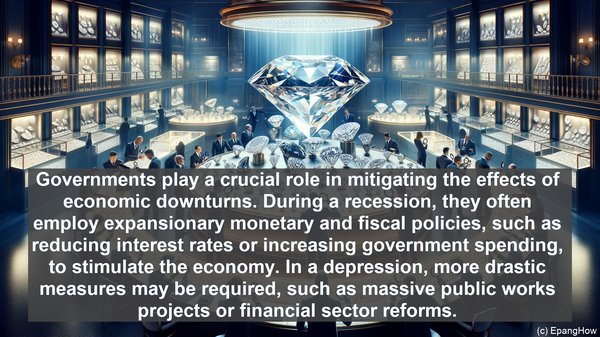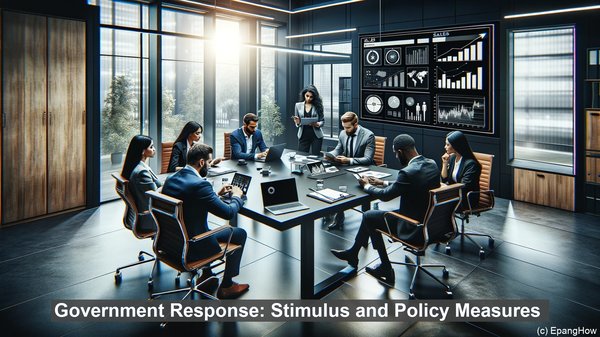Introduction: The Ebb and Flow of Economies
Hello everyone! Welcome to our channel. Today, we’re going to explore a fundamental aspect of economics: the difference between a recession and a depression. While these terms are often used interchangeably, they have distinct meanings and implications. So, let’s dive in!
Defining a Recession: A Temporary Slump
A recession is characterized by a significant decline in economic activity, typically lasting for a few months to a year. It’s marked by a contraction in various indicators, such as GDP, industrial production, and employment. Recessions are a natural part of the economic cycle, often caused by factors like reduced consumer spending, tightening credit, or external shocks like natural disasters.
Understanding a Depression: A Prolonged Downturn
A depression, on the other hand, is an extreme and prolonged economic downturn. It’s characterized by a severe contraction in economic activity, lasting for multiple years. Depressions are rare and have far-reaching consequences. The most infamous example is the Great Depression of the 1930s, which lasted for almost a decade and had a global impact.
Key Differences: Magnitude and Duration
One of the key distinctions between recessions and depressions is the magnitude of the economic decline. While recessions typically involve a decline in GDP by a few percentage points, depressions often see a double-digit decline. Additionally, recessions are relatively short-lived, while depressions can span several years.

Implications: Unemployment and Financial Distress
The impact of a recession or depression on individuals and businesses is significant. During a recession, unemployment rates may rise, and businesses may struggle, but the effects are generally less severe and can be mitigated through government intervention. In a depression, however, unemployment can reach alarming levels, businesses may shut down, and there can be widespread financial distress.

Government Response: Stimulus and Policy Measures
Governments play a crucial role in mitigating the effects of economic downturns. During a recession, they often employ expansionary monetary and fiscal policies, such as reducing interest rates or increasing government spending, to stimulate the economy. In a depression, more drastic measures may be required, such as massive public works projects or financial sector reforms.
